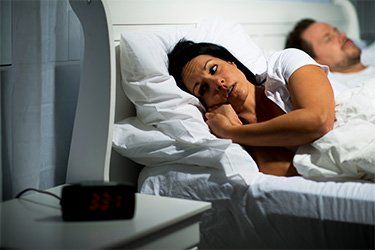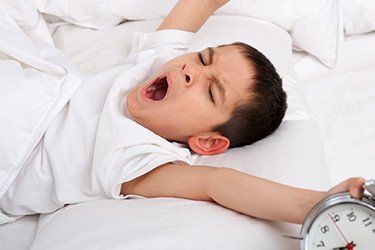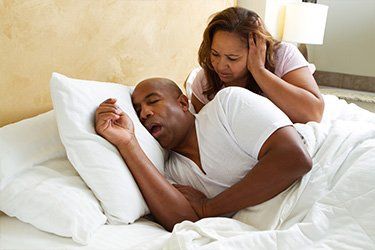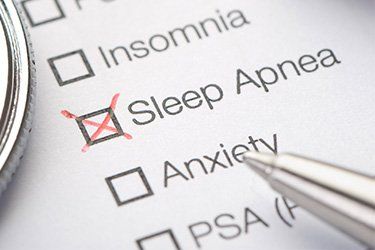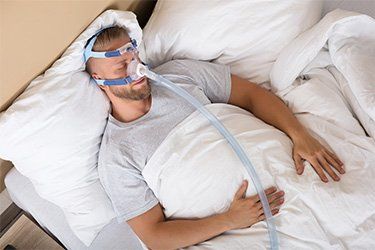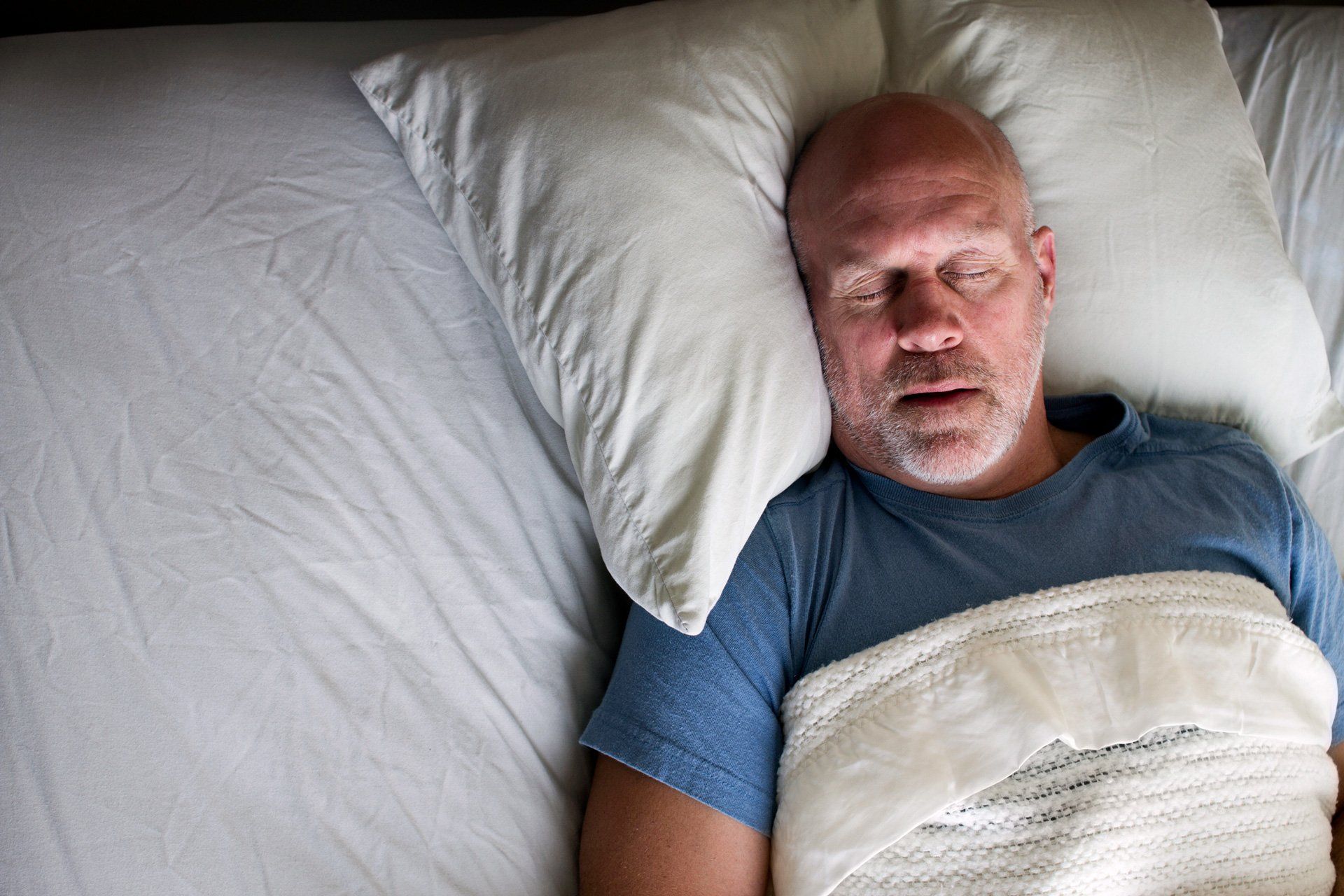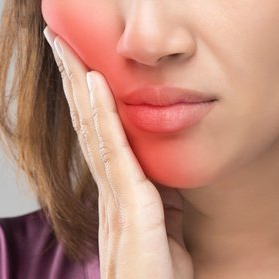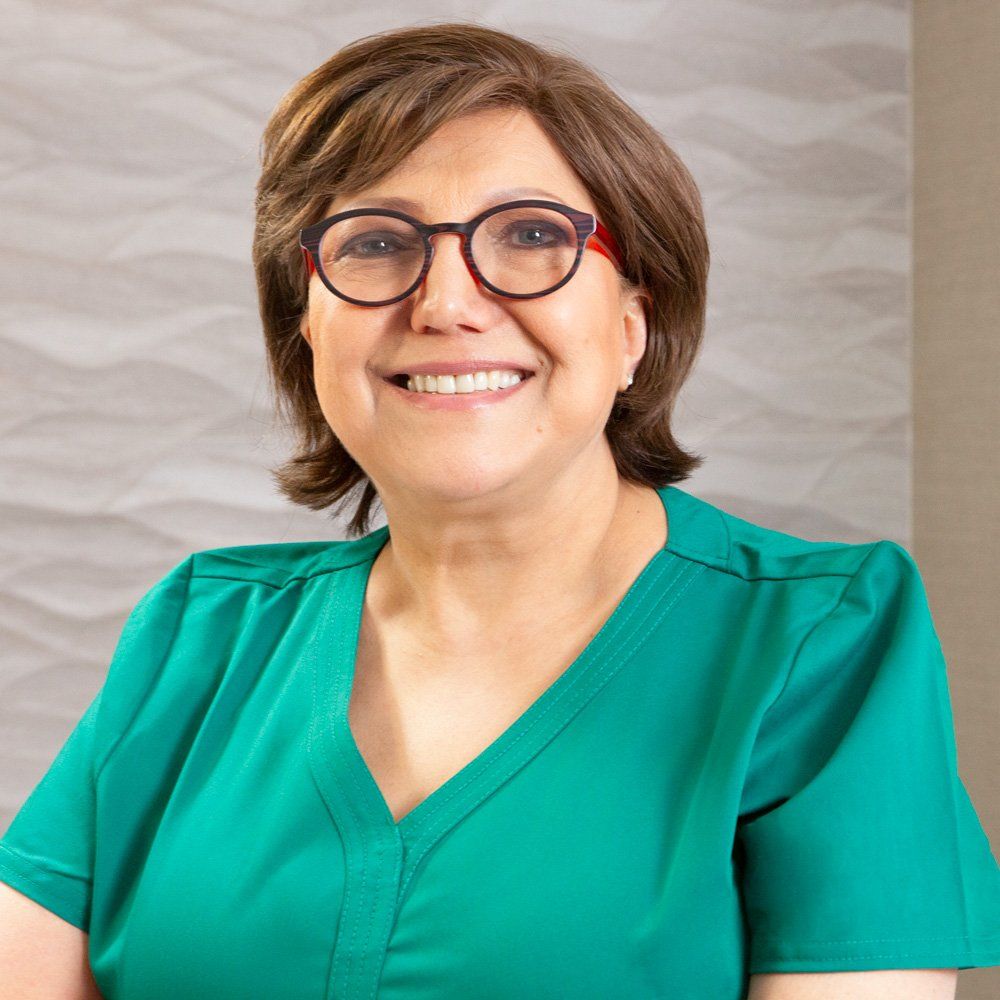How to Prevent Sleep Apnea
At Breath of Life Dental, we can actually help you to prevent sleep apnea and its damaging effects before they start. Through a detailed analysis, we can detect if you have a narrowed airway or any structural abnormality of the face, mouth, jaw or throat which would predispose you to developing sleep apnea.
Revealing this risk for our patients has motivated many to ask for a resolution of these structural problems. By eliminating structural abnormalities before sleep apnea appears, our patients can avoid the long list of problems associated with sleep apnea. These problems include:
- Daytime sleepiness
- Chronic fatigue
- Headaches
- Diabetes
- Heart disease
- Stroke
- High blood pressure
- Dementia
- Premature death
In addition to structural changes to your airway, there are certain lifestyle changes and home remedies you can try that can help you prevent sleep apnea and maintain your good health. Keep reading to learn more about the preventative steps you can take at home to reduce your risk of developing sleep apnea.
Have you already been diagnosed with sleep apnea? Call Breath of Life Dental (BOLD) at
(301) 818-2653 to schedule a consultation with Dr. Maryam Seifi and get relief from your symptoms today.
What Is Sleep Apnea?
Sleep apnea is a type of sleep disordered breathing.
Apnea
comes from the Greek word
apnous, meaning “breathless.” It is the medical term to describe when someone temporarily stops breathing, especially during sleep. When you have apnea, sleep can be restless and poor quality.
What Are the Types of Sleep Apnea?
There are three different types of sleep apnea that can affect both adults and children:
- Obstructive sleep apnea (OSA), which happens when something (such as your tongue) blocks your airway during sleep.
- Central sleep apnea (CSA), which happens when your brain does not send the signals to your respiratory muscles to breathe, or when your respiratory muscles ignore those signals.
- Complex sleep apnea (CompSA), which is also called treatment-emergent central sleep apnea, happens when a person develops central sleep apnea during their treatment for obstructive sleep apnea.
What Causes Sleep Apnea?
The causes of sleep apnea can vary depending on the type of apnea you have:
- Obstructive sleep apnea is caused by structural issues in the face and jaw that create a narrow upper airway. An underdeveloped mandible also restricts the space for your tongue to rest, which makes it more likely for your tongue to fall back into your upper airway and obstruct your breathing. Weak muscles in your throat can also lead to obstructive sleep apnea.
- Central sleep apnea is caused by miscommunication between the brain and the respiratory muscles. This miscommunication can often happen because of medical conditions that affect the brainstem (such as a stroke) or conditions that require the use of opioids to manage pain.
- Complex sleep apnea is caused when a person uses a continuous positive airway pressure (CPAP) machine to treat their obstructive sleep apnea. In a small number of cases, the treatment for sleep apnea handles the obstruction but the apnea persists. This is also known as treatment-emergent central sleep apnea.
What Are the Symptoms of Sleep Apnea?
People with sleep apnea may have difficulty noticing their symptoms because they are so similar to the symptoms of stress, lack of sleep, and other situations that we all deal with at some point in our lives. The most obvious symptom is that you wake up multiple times per night gasping or choking; but due to the lack of sleep, most people with sleep apnea will not remember doing this. That’s why if you do not share a bed with someone who can point this symptom out to you, it’s important to recognize the other symptoms of sleep apnea.
The most common sleep apnea symptoms are:
- Loud snoring
- Waking up gasping for air or choking
- Having headaches in the morning
- Difficulty concentrating during the day
- Excessive daytime sleepiness or exhaustion
- Dry mouth or sore throat in the morning
- Unexplained changes in mood, like depression or anxiety
- Sudden short temper or irritability
- Unusually low sex drive
- Difficulty getting to sleep and staying asleep
- TMJ disorders (pain in the joint that connects your lower jaw to your face)
If you are experiencing any of these symptoms, you should schedule a consultation with Dr. Maryam Seifi at Breath of Life Dental (BOLD) today. With her decades of experience, Dr. Seifi can help determine if sleep apnea is the cause of your symptoms and develop a treatment plan for you.
Do Children Experience Different Sleep Apnea Symptoms?
Sleep apnea can also affect children and teenagers. While children can experience many of the same symptoms as adults do, there are sleep apnea symptoms that are more commonly seen in children. These symptoms include:
- Snoring
- Coughing in their sleep
- Trouble focusing in school
- Night sweats
- Breathing through their mouth
- Feeling anxious or depressed
- Sudden short temper
- Sleepwalking
- Talking in their sleep
- Night terrors
- Wetting the bed
- Being exhausted during the day
Children especially need to get high quality sleep every night because their bodies are still growing. Untreated sleep apnea in children can lead to the above symptoms, poor grades in school, and more serious medical conditions. If you suspect that your child has sleep apnea, call Breath of Life Dental (BOLD) to schedule a consultation with Dr. Seifi today. She will be able to evaluate your child’s symptoms and explain their treatment options once they’ve had sleep apnea diagnosed by a specialist.
Am I at Risk of Developing Sleep Apnea?
There are different genetic and lifestyle factors that can increase your risk of developing sleep apnea, and it is important to understand what they are so that you can take the proper steps to prevent it. These factors include:
- Obesity
- A small upper airway
- Family history of sleep apnea
- Older age
- Gender (more common in men)
- Smoking
- Drinking alcohol
- Using sedatives or opiates.
In addition to the above factors, the following medical conditions can increase your risk of developing
central sleep apnea:
- Congestive heart failure
- Stroke
- Injury to the brainstem
- Neuromuscular diseases
If these conditions apply to you, then you should schedule an appointment with Dr. Maryam Seifi at Breath of Life Dental (BOLD). She will be able to advise you on the specific lifestyle changes you can make to lower your risk of developing sleep apnea.
How Can I Prevent Sleep Apnea at Home?
There are many different changes you can make at home to help reduce your risk of developing sleep apnea. These actions will also help improve your overall health and wellbeing, and they can help you to get a better night’s sleep. If you have already been diagnosed with sleep apnea, following the tips below can also help you improve your symptoms.
- Lose weight. Excess body fat, especially around the neck, can constrict your airway when you go to sleep and lead to obstructive sleep apnea. Changing your diet to get back into a healthy weight range can improve your sleep apnea symptoms by reducing the pressure on your neck when you lie down. Exercise can also help reduce your risk of developing sleep apnea because it keeps your muscles strong.
- Reduce alcohol consumption. Alcohol is a sedative that can relax your muscles and reduce your body’s response time. While drinking alcohol does not cause obstructive sleep apnea, it can put you at a higher risk of developing sleep disordered breathing because it can relax the muscles in your throat. It can also make it harder for your body to wake up to breathe. You can lower your risk of developing sleep apnea by limiting the amount of alcohol you drink per day or by quitting alcohol altogether.
- Quit smoking. Smoking can increase your risk of developing obstructive sleep apnea because it affects your lungs and can irritate your throat. It can also exacerbate your symptoms if you have already had sleep apnea diagnosed. When you quit smoking, you can lower that risk and improve your symptoms.
- Limit use of sedative medications. Just like alcohol, sedatives and opiates are designed to relax your muscles. If you use these types of medications, it can increase your risk of developing obstructive sleep apnea because your throat muscles will relax and your body will have a harder time waking up to breathe. Limiting your use of these medications will help prevent sleep apnea and improve your symptoms. Talk to your doctor about reducing your dosage or getting off of these medications to help manage your sleep apnea symptoms.
- Sleep on your side or stomach. When you sleep on your back, it is easier for your tongue to end up resting on your palate, thus obstructing your upper airway. This is because gravity will pull your tongue straight back against your throat. You can try sleeping on your side or on your stomach to reduce this risk. Sleeping this way can also help reduce snoring.
- Clear your sinuses. Another condition that can increase your risk of developing obstructive sleep apnea is nasal congestion. If you suffer from frequent congestion, you should talk to your doctor about using decongestants, antihistamines, or saline nasal sprays to help keep your airway clear. You can also try using a humidifier next to your bed at night time to keep your sinuses from drying out and overcompensating with extra mucous. This can help reduce your sleep apnea symptoms and allow you to get better rest at night.
- Get more exercise. When you exercise regularly, you strengthen your muscles and improve your blood oxygen level. This can help prevent sleep apnea by keeping your body strong and healthy. Yoga is a great type of exercise to achieve stronger respiratory muscles and increased blood oxygen levels because it incorporates many breathing exercises.
Can a Dentist Diagnose Sleep Apnea?
A dentist cannot officially diagnose sleep apnea. To get sleep apnea diagnosed, you will need to visit a sleep center to be evaluated by a specialist. However, dentists are uniquely suited to recognizing the early signs and symptoms of sleep apnea in adults and children because they are extremely knowledgeable in the anatomy of the face, jaw, throat, and sinuses.
Dr. Maryam Seifi has been treating sleep apnea in patients for decades. She has pursued specialized training in sleep disordered breathing and oral appliance therapy in order to help the people with sleep apnea in her community to live healthier lives. After a thorough examination, Dr. Seifi will be able to tell you how likely it is that you may have sleep apnea, and she can recommend a local sleep center where you can get an official diagnosis.
Once your sleep apnea is diagnosed, Dr. Seifi can create your custom treatment plan to handle the underlying causes of your sleep apnea without the need for invasive surgery or a CPAP machine. With her expert guidance, you can get the deep and restful sleep you need for a healthy body.
Sleep Apnea Prevention with the Vivos System
You don’t need to get an invasive surgical procedure or settle for an uncomfortable CPAP machine to treat your sleep apnea! Our treatment with the Vivos Biomimetic Oral Appliance enables us to remodel the structural problems that predispose one to sleep apnea. By using this simple system, you can achieve a widened airway and improved facial structure that will handle the underlying causes of your obstructive sleep apnea.
Learn how you may benefit from this treatment by attending a free educational seminar or by getting a personal consultation with Dr. Maryam Seifi. To schedule: call (301) 281-4725, email info@breathoflifeteam.com or send an online request.
I Have More Questions!
We have more answers! Check out the navigation bar at the top of the page to learn more about the different types of sleep apnea, how it can affect your health, and how the Vivos system can help. Or follow the links below to learn more about the different types of sleep apnea and how we can prevent and treat these conditions in children and adults.
- Obstructive sleep apnea
- Central sleep apnea
- Complex sleep apnea
- Treatment for adults
- Treatment for children
- Oral appliance therapy
Can’t find the answer to your question? Call us at
(301) 818-2653 to schedule your consultation with Dr. Maryam Seifi at Breath of Life Dental (BOLD) today! Dr. Seifi and her friendly team will be happy to answer any questions you may have about sleep apnea and its treatment at your appointment.

